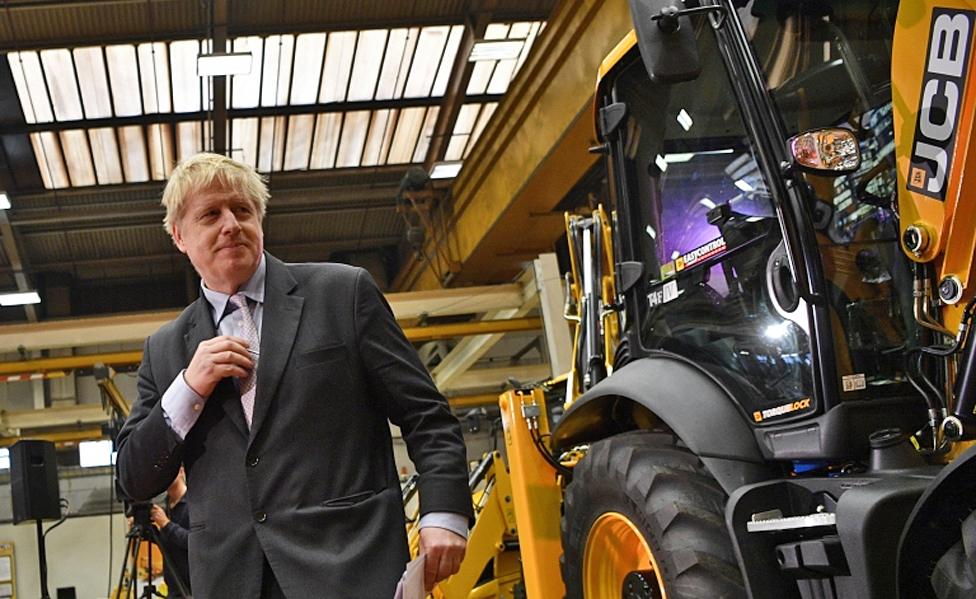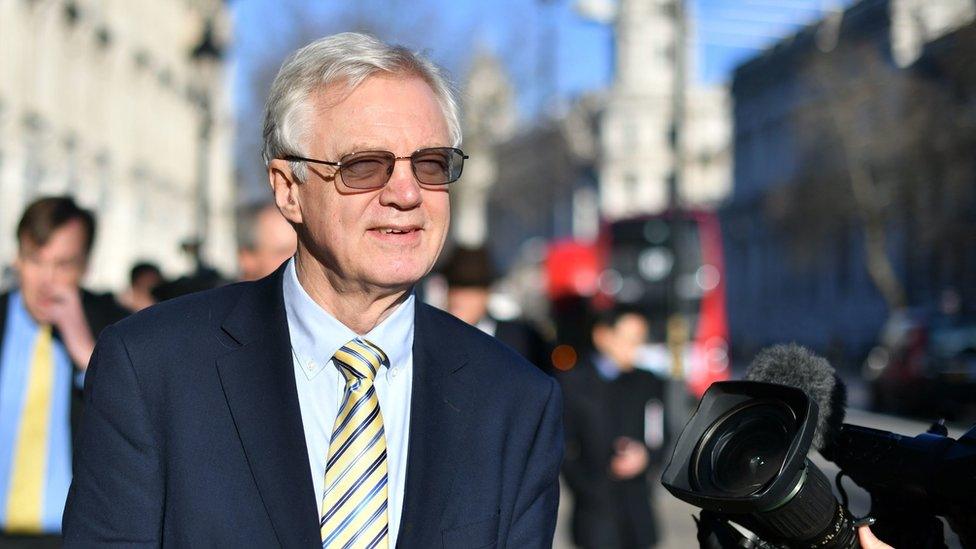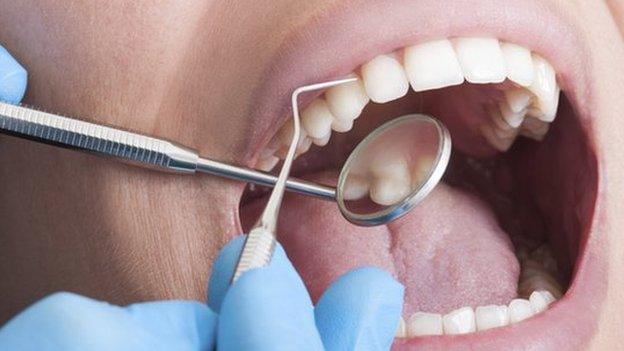Boris Johnson received £10,000 from JCB before Brexit speech
- Published

Mr Johnson complied with Parliamentary rules by entering the payment in the MPs' register of interests
Former foreign secretary Boris Johnson received £10,000 from JCB three days before giving a pro-Brexit speech at its Staffordshire base last week.
The donation is listed in the MPs' register of interests, external, as is the digger giant's deal to pay ex-Brexit secretary David Davis £60,000 for 20 hours' work.
One Labour MP said it was "disgusting" Mr Davis would earn that sum after he "failed to properly plan for Brexit".
JCB chairman Lord Bamford is a Tory donor who backed the UK leaving the EU.
Mr Johnson used the speech at the company's Rocester factory to describe as "shameful" proposals from backbench MPs to delay the date the UK leaves the EU.
However, he was later criticised for denying during questions that he had said anything about possible Turkish membership of the EU during the referendum campaign in 2016.
In fact, Mr Johnson had raised the issue several times in the run up to the June 2016 vote.
Mr Davis, meanwhile, entered in the register - where MPs are required to declare payments for work outside Parliament - that he would be paid between 1 January this year and 1 January 2020.
"I will receive £60,000 per annum, paid quarterly. Hours: approx. 20 hrs a year," he wrote, adding that he had consulted Parliament's advisory committee about the job.
The register also revealed Mr Davis had been made a board member of German manufacturing company Mansfelder Kupfer Und Messing for six months, from which he earned £36,085.
These payments are in addition to the £77,379 basic salary for an MP.

David Davis quit as Brexit secretary in July 2018
There are no rules banning MPs from holding other jobs but opinion is divided on it.
Labour MP Ian Murray, who supports the Best for Britain anti-Brexit campaign, said Mr Davis should not earn extra after "storming out of the cabinet".
"What an absolute insult to the people of the UK who have been left facing deeper austerity and increased living costs as a result of the calamitous Brexit he campaigned for and still supports," he said.
"There are very real consequences of the decisions he made, and workers in the construction and manufacturing sectors will be among those to pay the price."
What are the rules?
MPs are not allowed to act as a "paid advocate", and have to declare their financial interests, including paid employment outside Parliament, in the Register of Members' Financial Interests, external - which both MPs have done.
Cabinet members are not allowed other jobs and there are restrictions on the roles they can take up immediately after leaving office.
Those in favour of MPs earning additional payments say it gives them a broader range of experience and stops people from being "career politicians".
But critics want a ban, saying it would increase trust in Parliament.
Shadow Cabinet Office minister Jon Trickett said: "What David Davis will get paid in 20 hours takes most people over two years to earn. But then again, under the Tories it's one set of rules for the few and another for the many.
"Most people, when reading this, will no doubt think 'snouts in the trough', and this is exactly why Labour has repeatedly warned of the damage to the reputation of Parliament caused by arrangements like this and why they need to stop."
Mr Davis resigned as Brexit secretary in July 2018.
Since quitting his job as foreign secretary shortly afterwards, Mr Johnson received a number of large sums for jobs outside Parliament, including £94,507.85 from GoldenTree Asset Management for a two-hour speaking engagement.
Another former Brexit secretary, Dominic Raab, has only registered two sums since he quit the post in November for two columns in the Telegraph - which earned him £520 in total.
- Published25 February 2015
